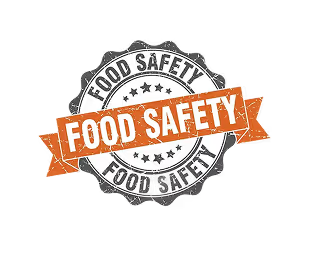Food Safety Act
The Food Safety Act 1990 is the primary legislation governing food safety in the UK. It places legal responsibility on food businesses to make sure that food is safe, accurately described and not misleading. It applies across the entire food chain, from production and processing to distribution and retail, and is enforced by the Food Standards Agency (FSA) and local authorities.
In today’s complex food supply chains, businesses must go beyond hygiene checks and temperature logs. They need to show that food safety data is traceable, up to date and readily available for inspection. That means adopting digital systems that support continuous monitoring, clear accountability and fast access to records during audits or recalls, such as our platform RmoniWeb.

What does the Food Safety Act mean for your digital systems?
The Food Safety Act governs every step of the food chain, from raw ingredients to end products.This broad scope means your digital systems must do more than store data: they need to actively support food safety and compliance across your operation. Key expectations include:
- Traceability - Your system must allow you to track registrations, production steps and temperature conditions for every batch.
- Due diligence - In case of a food safety issue, your records must show that you took all reasonable steps to comply with legal requirements.
- Instant access - You must be able to retrieve accurate, unaltered data immediately, whether for a routine audit or a product recall.
Digital records play a central role in proving compliance. If you can’t demonstrate control over your processes and data, you may face enforcement actions such as warnings or recalls.
Why digital traceability matters
In modern food production, paper records are no longer enough. Regulatory expectations,consumer demands and complex supply chains require a digital-first approach to food safety. Digitally managed processes make compliance more efficient, verifiable and transparent especially during inspections or audits.
Examples include digital temperature logging for cold storage, structured hygiene checks and centralised registrations of corrective actions, supplier controls and allergen management. With a system like RmoniWeb, all of this information is captured in real-time, securely stored and accessible when you need it most.
Is your system Food Safety Act-ready?
To meet the expectations of the Food Safety Act, your system must support consistent monitoring, clear accountability and audit-ready documentation. It should give you and your team confidence that food safety standards are being upheld at every stage and that you can prove it.
RmoniWeb helps businesses in the UK food sector achieve this by automating monitoring, securing digital records and offering a full audit trail across all safety-critical domains.

